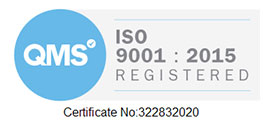It may surprise you to know that Fault / Short Circuit studies are a legal requirement in the UK. Part of the confusion over the issues, is because this is not explicitly stated in primary legislation anywhere. It is however heavily implied in the Electrical Safety, Quality and Continuity Regulations (ESQCR) 2002 in clause 3 and in the HSE Guidance booklet (HSG230) – Keeping electrical switchgear safe. Both documents state (paraphrasing slightly) that switchgear must be safe to operate and use, which means that it must be rated for its required duty. From an asset owners perspective, this means your switchgear has to be suitably rated to operate within the required current / fault rating.
In practical terms, a switchgear’s fault rating is its ability to withstand / clear a fault without causing major damage to the integrity of the switchgear. If the fault level is exceeded when a fault occurs the switchgear will be unable to contain the fault energy and this could result in catastrophic failure and explosion, which would pose a direct risk to operators.
It is important to note that this is a totally different issue to that of arc flash faults, for which the standards in the UK are slightly less clear. Switchgear can be within its fault rating but still pose an arc flash risk – this can be managed in various ways (arc flash limitation devices, protection settings, PPE etc) whilst switchgear outside of its fault rating is always dangerous.
The studies are usually carried out to the well known IEC 60909 standard, but in some cases the ENA G74 or ANSI C37. The studies are used to determine the peak, initial symmetrical and break fault currents in a network and are then used to cross check that the switchgear has been selected correctly to ensure that during a fault the breaker can extinguish the arc and the switchgear will contain the fault.
- IEC 60909
- ENA G74
- ANSI C37
- DC Offset and Aysmmetrical break duty
- EMT calculations
- Delayed current zeros
- Generator Circuit Breaker (GCB) assessment and calculation IEC/IEEE 62271-37-013:2021
It is important to note that a fault study should also check individual breaker ratings, as sometimes the switchgear housing can be suitable, but individual breakers ratings can be exceeded. Where this gets really interesting is for generator circuit breakers (GCBs) that have uniquely complicated requirements of breaking high DC offsets and possibly delayed current zeroes.
Aurora can carry out short circuit / fault studies for pretty much any type of site, using either DIgSILENT Powerfactory or ETAP. If you want to know more – please get in touch



